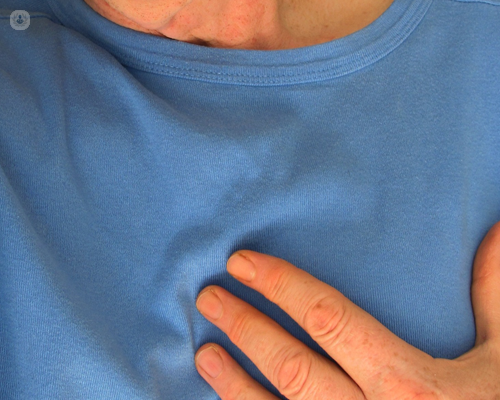Can coronary heart disease be prevented?
Written in association with:Coronary heart disease (CHD) is a condition where the arteries supplying blood to the heart become narrowed or blocked by the buildup of plaque, leading to reduced blood flow. It remains one of the leading causes of death globally. While factors such as age, gender, and genetics cannot be changed, many aspects of CHD risk are modifiable. Preventative strategies focus on lifestyle changes, medical monitoring, and treatment to significantly lower the likelihood of developing the disease.

What lifestyle changes can reduce CHD risk?
Making deliberate lifestyle adjustments is one of the most effective ways to prevent coronary heart disease. Here are key areas to focus on:
- Diet:
- Eat a diet rich in fruits, vegetables, whole grains and lean proteins.
- Incorporate healthy fats, such as those found in nuts, seeds, avocados and oily fish.
- Avoid trans fats and limit saturated fat intake.
- Reduce salt consumption to manage blood pressure.
- Exercise:
- Aim for at least 150 minutes of moderate-intensity aerobic activity each week, such as brisk walking, swimming, or cycling.
- Include muscle-strengthening activities at least twice a week.
- Avoid prolonged sedentary periods by incorporating movement throughout your day.
- Smoking cessation:
- Smoking damages blood vessels and accelerates plaque buildup. Quitting smoking, even later in life, can significantly lower CHD risk.
- Alcohol moderation:
- Keep alcohol intake within recommended guidelines to avoid increases in blood pressure and weight gain.
- Stress management:
- Practise mindfulness, yoga, or meditation.
- Seek counselling if stress is persistent and difficult to manage.
The importance of regular medical monitoring
For individuals with risk factors such as high blood pressure, high cholesterol, or diabetes, regular monitoring is essential to prevent CHD. Routine health checks can identify and address these conditions before complications arise.
Key medical interventions include:
- Medications:
- Statins to lower cholesterol levels.
- Antihypertensives to manage blood pressure.
- Blood sugar-lowering medications for people with diabetes.
- Advanced therapies:
- PCSK9 inhibitors for individuals with genetic high cholesterol or statin intolerance.
- Low-dose aspirin for high-risk patients to reduce blood clot formation (only under medical guidance).
Identifying and managing risk factors
It’s important to assess and address individual risk factors early. Risk factors for CHD include:
- High cholesterol levels
- High blood pressure (hypertension)
- Diabetes or insulin resistance
- Obesity, particularly abdominal obesity
- Sedentary lifestyle
By working with your doctor, you can develop a personalised prevention plan. Tools such as blood tests, blood pressure monitoring, and imaging may be used to evaluate your heart health.
Why early prevention matters
Preventing CHD is not just about avoiding a heart attack; it’s about improving overall quality of life. A healthy heart supports better energy levels, mental health and longevity. Small, consistent changes in diet, activity and habits can yield substantial benefits over time.
If you’re concerned about your heart health, consulting with a healthcare provider is the first step toward protecting your heart and ensuring a healthier future.


